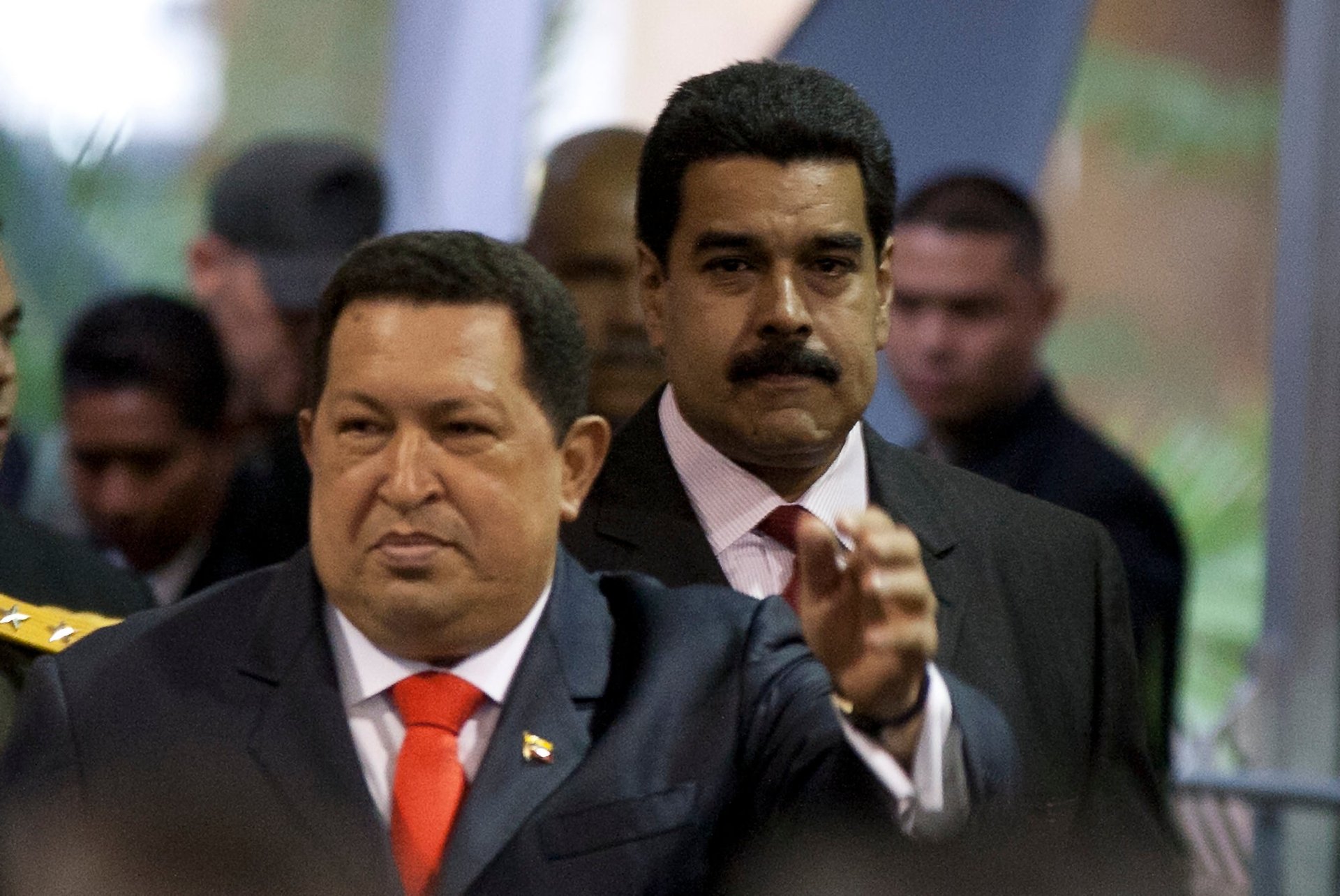Now that cancer-stricken Chavez has signaled his possible departure, here is how the race to succeed him will go
Before leaving this morning for a new round of cancer surgery in Cuba, Venezuelan President Hugo Chavez made his choice should he become incapacitated or die after nearly 14 years in power: his people should elect his vice president, a 50-year-old former bus driver named Nicolas Maduro.


Before leaving this morning for a new round of cancer surgery in Cuba, Venezuelan President Hugo Chavez made his choice should he become incapacitated or die after nearly 14 years in power: his people should elect his vice president, a 50-year-old former bus driver named Nicolas Maduro.
The 58-year-old Chavez, who in October won a third six-year term and is to take his oath of office on Jan. 10, returned last week from Cuba, where doctors discovered a recurrence of cancer after three prior surgeries over the last 17 months.
Under the nation’s charter, Diosdado Cabello, president of the National Assembly, must call elections within 30 days of Chavez stepping down from politics or dying. But the election effectively began the moment Chavez made the emotional televised announcement, in which at one point he sang.
Now, attention will be on Henrique Capriles Radonski, the charismatic 40-year-old opposition leader whom Chavez beat to obtain his third, six-year term. On Dec. 16, Capriles is running for re-election of governor of Miranda state.
Chavez has sought to do away with Capriles once and for all by pitting his former vice president, Elias Jaua, against him for the Miranda governorship. But should Capriles win, he is sure to be a formidable opponent to Maduro.
But it may not be so simple. While Chavez supports Maduro, once the Venezuelan leader is out of the picture, ambition could prevail, and we could also see the 49-year-old Cabello run, too.
In televised remarks, Capriles rejected Maduro. “Venezuela doesn’t have succession,” Capriles said. “This is not Cuba nor is it a monarchy that has a king. Here in Venezuela, when someone leaves a position, the people get the last word.”
In Maduro, Chavez selected someone long and tightly loyal to him and his politics, a skilled operative with strong union credentials to flaunt in the populist Venezuelan political environment in which Chavez flourished. When Chavez was imprisoned following a failed 1992 coup, Maduro’s wife, Cilia Flores, represented him in court proceedings that resulted in his release. Maduro often accompanies Chavez for the cancer treatments in Cuba, and has been an elected leader since 2000.
As Venezuela’s leader, Chavez has stirred politics across Latin America and the Caribbean. He backed the FARC guerrillas of Colombia and threatened war with the country. He also gleefully aligned with global leaders prone to poking a finger in the eye of Washington, including Cuba’s Fidel Castro and Russia’s Vladimir Putin. Those politics are bound to end when Chavez goes.
What may stay roughly the same is Chavez’s oil politics. While Venezuela has the largest petroleum reserves on the planet, with the heavy oil of the Orinoco Basin, Chavez has led a decline in his country’s actual production and stature in energy by politicizing the state oil company, PDVSA, and changing contract terms with foreign oil companies. Maduro will probably retain tight political control over PDVSA. For his part, Capriles has said that he would be more pragmatic than political on the oil patch, but analysts have not expected much tangible change in terms of his dealings with foreign companies.